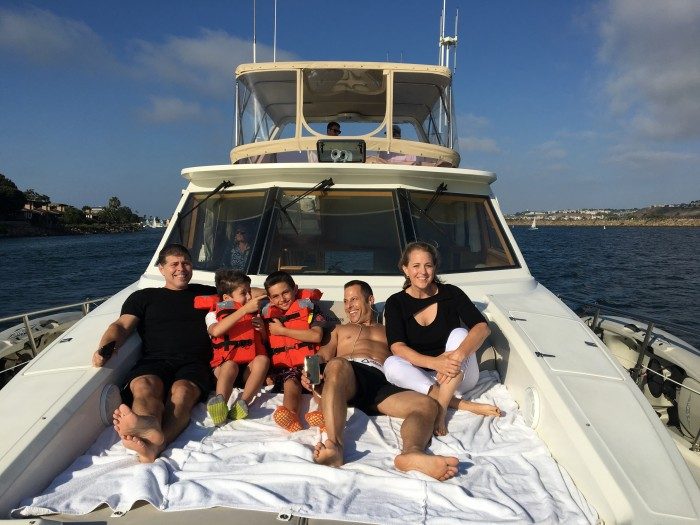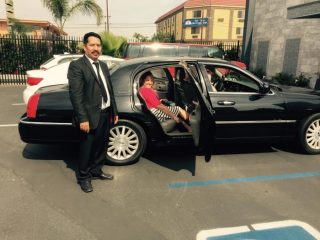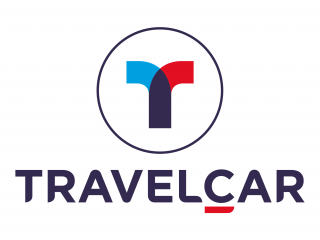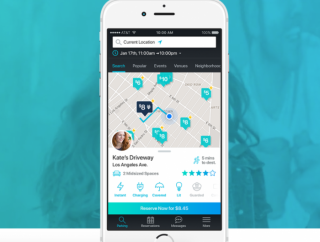The new way to travel and vacation in the share economy
Families find affordability and convenience in the share economy

Our parents told us it was good manners to share our toys when we were kids. Taking turns and letting others play with our treasured possessions kept us from arguing and feeling resentful. As we got older though, most of us stopped this practice, until recently, when we once again embraced the philosophy that “sharing is caring.”
With the advent of the share economy, families are finding news ways to take family vacations, and some are using it to earn some extra money for their household.
We are living in a material world
The truth is, there’s plenty to go around, and in an ideal world, if we just let others use our things when we aren’t using them, then no one would be without. Imagine the resources we could save by not buying stuff that we only need occasionally.
Consider the freedom of using things for which you do not have to assume risk and responsibility or need to store, maintain, register or license. It seems so logical, but until five years ago, there was no such thing as a share economy. Now, you can share just about anything, and just like when we were kids, everyone wins.
Uber was the first ride share service to take off. This innovative company built an app that allowed just about anyone with a street-legal car to connect with riders who would pay drivers for sharing their ride. The idea was to give transportation to people who were already going your way, and those passengers would compensate you, essentially sharing the cost of the gas and upkeep on your car. It was such as great idea, ride share companies like Lyft, Opoli and others soon got on board.

Of course, it ended up that more cars, not fewer, ended up on the road, and Uber and the others became basically cheaper and less-regulated taxis. But the sharing economy was born, and a new mentality emerged, whereby society began sharing all sorts of things, and sharing opened up new realms of possibilities and experiences that continue to evolve into a new way of living for tens of millions of people.
Experience sharing
Not only does sharing eliminate the need for ownership of expensive things that we only use occasionally, it provides unique opportunities between people of all backgrounds, and in some cases it can be an equalizer between the have and have nots, and it can open up new markets where none existed.
Airbnb allows people to sublet or share their homes, providing a new source of income for hosts and opening up affordable travel to families for whom the cost of hotels was prohibitive. In some cases, Airbnb might be the only accommodations in remote areas where there are no hotels, bringing visitors to previously off-the-grid destinations.

Even families with ample budgets often opt for Airbnb accommodations, preferring the privacy of renting of an entire home, the experience of staying embedded in a cool neighborhood, or the companionship of residing with a host, who might share a cup of coffee in the morning or even take guests on a shopping outing, site-seeing tour, surfing adventure or other paid experience.
Soon variations on home sharing evolved, like Boatsetter, a peer-to-peer boat rental marketplace which connects boatowners with guests who want to enjoy an adventure on the water. The owners can invent experiences in San Francisco, Los Angeles, Miami and Barcelona, where boatowners host guest on experiences such as deep sea fishing, whale watching or a Live Like a Star party boat ride on a yacht or even a sleepover on a boat with breakfast included.


Though not quite as glamourous as a yacht cruise, TravelCar, which has a fleet of hundreds of cars available in Los Angeles and San Francisco, offers users the opportunity for travelers to rent a car at a discounted rate from a private owner, usually while the owner is traveling. The host receives a portion of the rental fee and gets free airport parking and a car wash in exchange for lending out their vehicle, and if they host as part of TravelCar’s monthly program, TravelCar provides routine maintenance, such as oil changes, wiper fluid, and tire rotation.

Of course, you don’t have to own a home, boat or even a car to be part of the share economy. Pavemint allows those with parking spaces to lease them out short- or long-term. In Los Angeles, where the company recently launched, already more than 4,000 parking spaces are available on the app, from driveways, garages and carports to unused office building parking lots. Besides bringing in a little spending money to the hosts, utilizing empty parking spots and offering guaranteed parking to visitors has helped boost business in city neighborhoods, like Hollywood, where safe parking – or any parking — is scarce.


The success of Uber, Airbnb and spinoffs has spawned many other types of share services, particularly in large cities, where companies vie to be the Uber of their lot, like Bird, a Southern California company that rents stand-up electric scooters through a mobile phone app, allowing riders to find and activate scooters that are at depots throughout Santa Monica, Venice and other neighborhoods in Los Angeles and San Diego, for a cost of $1 per ride and 15 cents per minute.
Then there’s LimeBike, a smart bike sharing company with more than 35 regional locations in cities and college campuses across the US including Seattle, Washington D.C., Dallas, and Miami. Even Uber, through its subsidiary Jump Bike, has gotten into the two-wheeler share space, offering hosts the opportunity to lease out their bikes in San Francisco, with a fleet of 250 bikes and growing, and plans to soon to expand into other cities.

With all sharing propositions, there are pros and cons, for both hosts and users. While hosts and their properties are supposed to meet certain standards, sometimes they all short. Likewise, guests and leases are bound to rules of conduct and care that they do not always follow. There are risks to personal property and personal safety in some cases, that both parties accept, which is stated in the fine print of the terms of service to which they agree before participating in the service.
Not only are there risks of letting others use our things, but there are risks to sharing our identity and financial information when we participate in the share economy. According to cybersecurity expert, David Thomas, CEO of Evident ID, “While the sharing economy makes services and goods more accessible than ever, it also asks users to interact with people they do not know and may not trust. That’s why it is important to understand the level of verification and security a sharing economy provider has in place for its community.”
While there are isolated horror stories, with the extreme of Uber driver murders and reports of Airbnb thefts and vandalism, for the most part, sharing works. The benefit of sharing is not just new sources of passive revenue for property owners and wages for many people in need of flexible hours – the old retort when someone in LA claims to be an actor, “Really? What restaurant?” is now, “Really? Uber or Lyft?” – it is also a cleaner environment, a healthier lifestyle, accessibility of affordable transportation and accommodations for travelers, and the advent of new ways for us to interact with each other as a society.
When our parents encouraged us to share as kids, our playdates were more enjoyable and peaceful, and everyone was happier. It has taken us generations as a society to learn that truth that we accepted as young children. Sharing is caring. When we share, we all benefit, in untold and immeasurable ways. As we continue to invent new ways to share, we expand our economy and our minds, and we might not just make some extra money but make a new BFF.